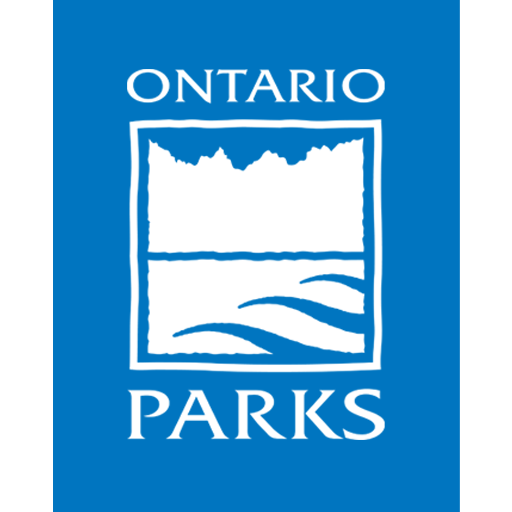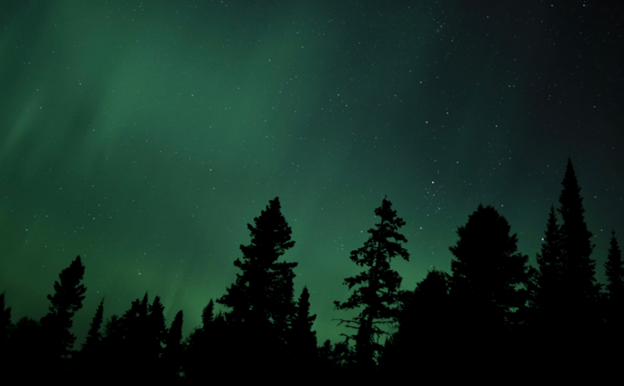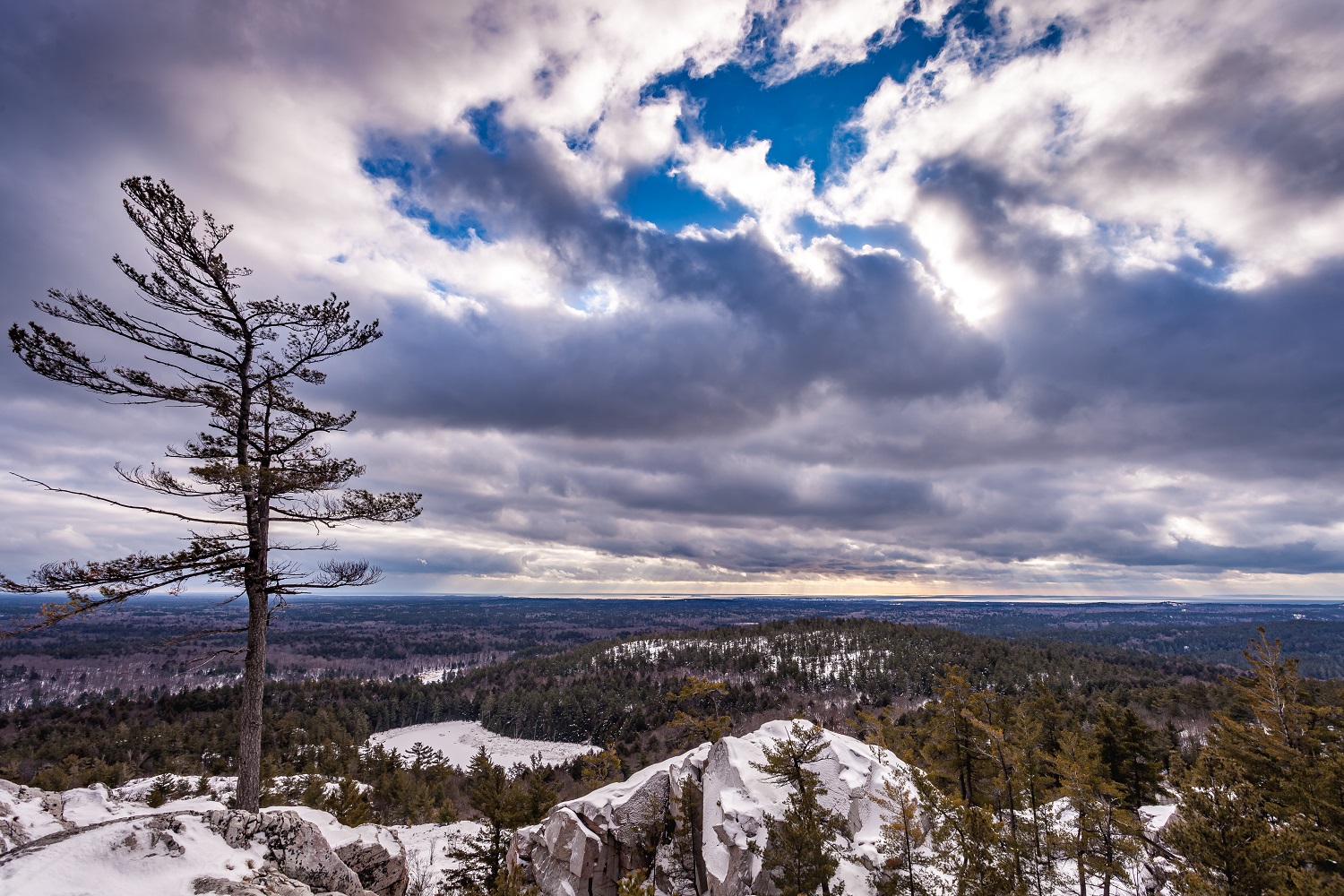This is a story about garbage.
It wasn’t a quick journey. It took a plane ride, some paddling in a canoe, portaging, more paddling, another plane ride, and a drive on the highway.
This garbage was left in Algonquin Provincial Park’s remote backcountry, something that, unfortunately, happens far too often.
An unwelcome package
It started with an email from a park visitor who discovered a sleeping bag full of rotting garbage on a backcountry campsite. Leaving animal attractants like rotting garbage is a food reward for wildlife, including bears.
And we don’t want to encourage bears to return to campsites in search of food.
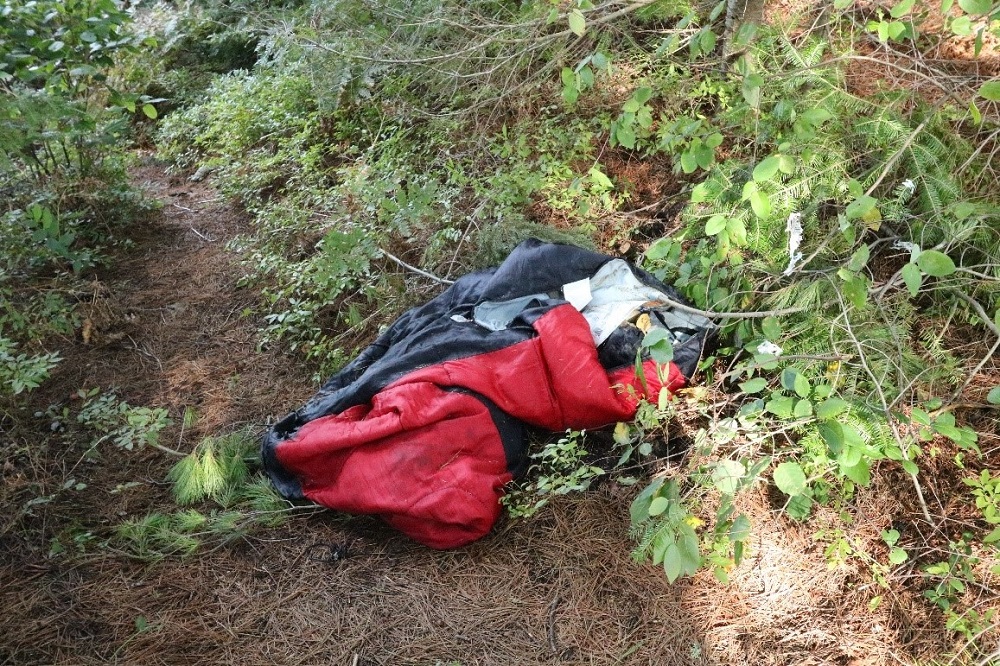
In response to the visitor’s report, a backcountry ranger team was assigned to the clean-up task.
The journey begins
Our rangers decided to photo-document the journey to share what it takes to remove garbage from the backcountry.
Our rangers arrived at the Smoke Lake Hangar, and loaded up their gear on the Turbo Beaver plane.
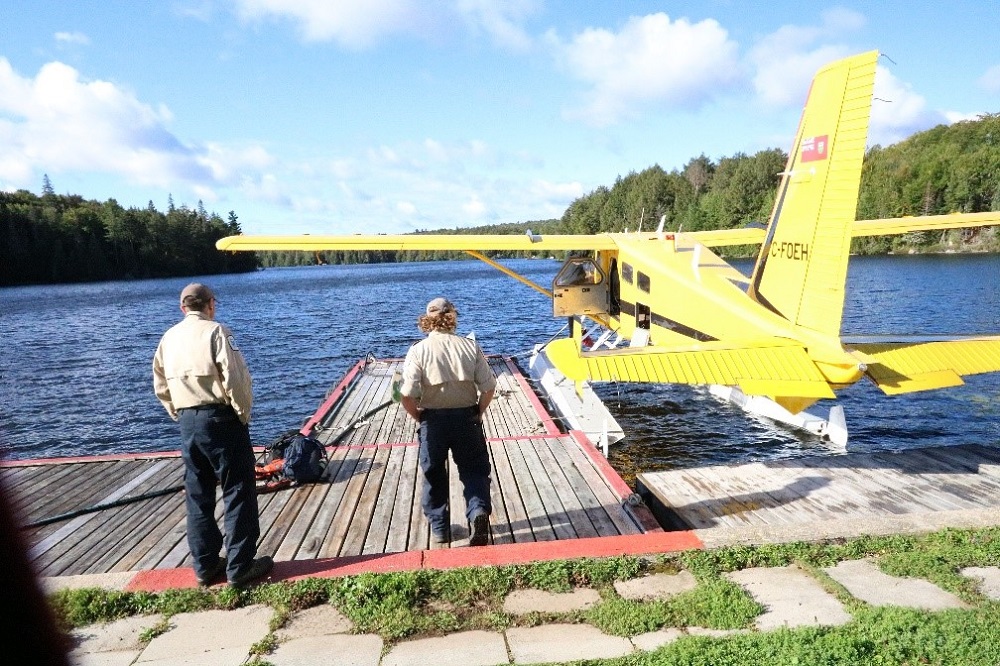
Once they arrived on the lake, the next phase of the journey included paddling to the portage landing.

Thanks to the directions provided in the customer’s email, the rangers located the trash quickly.
Unfortunately, in the summer heat, the sleeping bag was quite fragrant…

For the last phase of the journey, the garbage was loaded into a park truck to be driven to the nearest waste sorting facility.
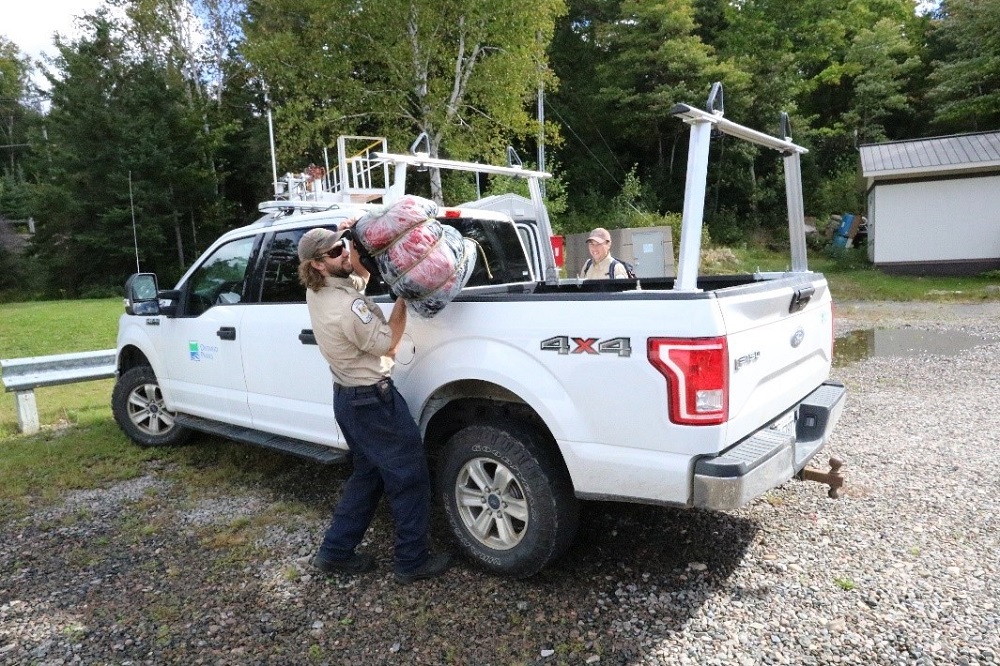
Finally!
The end of the journey for this bag of garbage.
Unfortunately, our rangers regularly encounter garbage and broken and/or abandoned equipment on almost every maintenance trip they do.
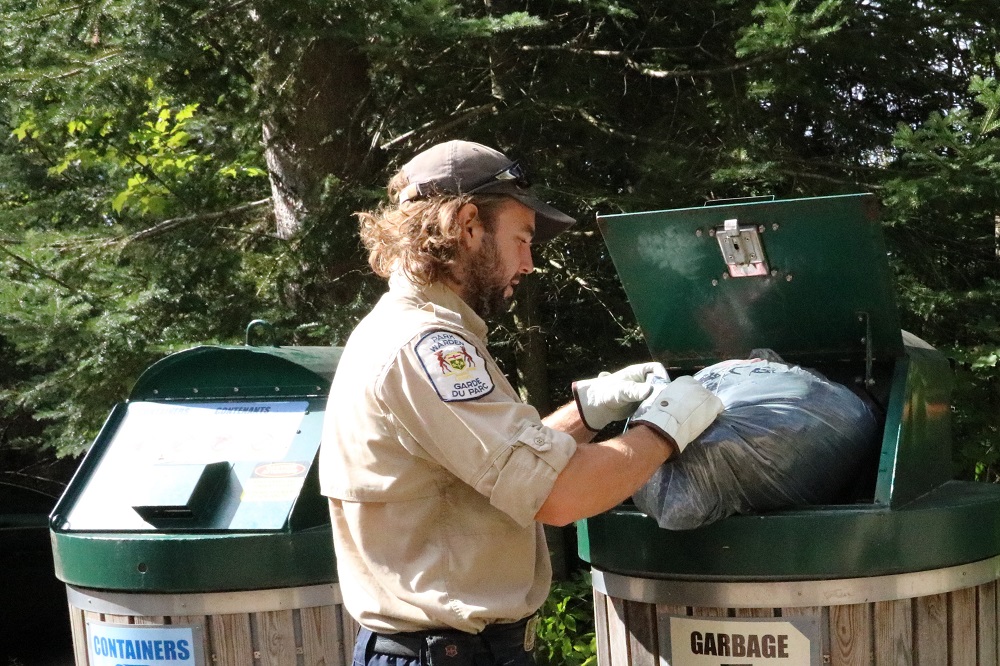
Food left in fire pits, full coolers, a barbecue with an entire bag of charcoal, ripped tarps, and many, many broken camp chairs.
Our backcountry rangers want you to remember a few things:

Pack food items strategically, and look for ways to reduce food packaging.
Non-burnable garbage must be packed out, so bring a sealable bag and store it in your bear hang during your trip.
Never leave food items or garbage in the fire pit.
For every item you pack, ask yourself: do I truly need that item, and do I want to carry it on my back for the duration of my trip?
Backcountry equipment is specialized, and is most often made with lightweight materials. What you bring to a campground may not be practical for backcountry camping. Leave the charcoal barbecue and coolers at home!
Quality equipment is often worth the investment. Our rangers often find equipment that failed its owners and was abandoned in the middle of the backcountry. Poorly-made chairs and tents are regular culprits.
